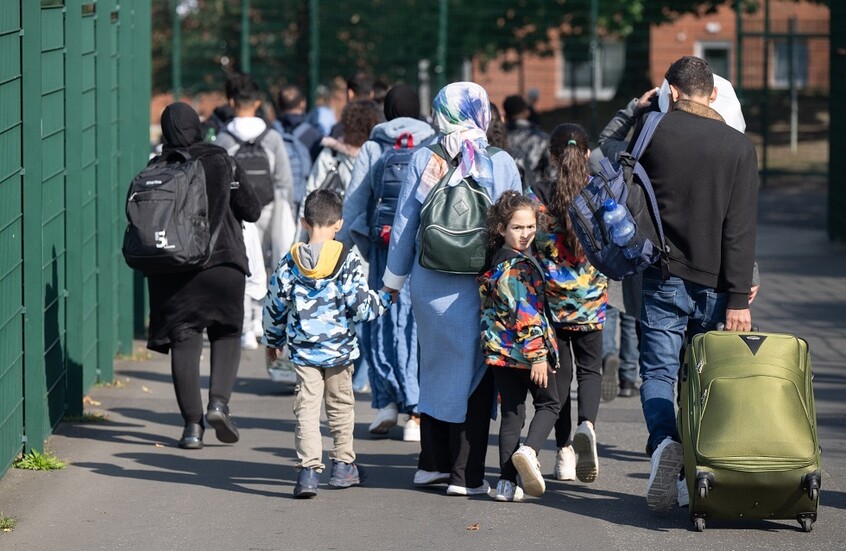Migration researchers have criticized the European Union’s newly adopted migration policy reforms. The researchers warned of the erosion of international asylum standards within the European Union and emphasized that the new migration policy endangers children’s lives despite their need for special protection.
The criticisms followed the presentation of the “Global Great Escape 2024” report, which is published annually by the Global Project for Aviation and Refugee Research. This report involves research teams from universities including Erlangen-Nuremberg and Osnabrück, the International Center for Conflict Studies in Bonn, and the German Institute for Development and Sustainability.
This year’s global report was issued following the approval of substantial amendments to the EU’s asylum policy, which took eight years of discussions within the union. These amendments are facing severe criticism from German migration research experts. One of the most vocal critics is Frank Duvil, a researcher at the Migration and Cultural Studies Institute at the University of Osnabrück, who stated that the new policy disregards basic standards for refugee protection and that global responsibility for refugee protection is mere rhetoric.
The 2024 global report specifically addresses the EU’s migration policy reforms. These reforms allow for the interception of asylum seekers who do not qualify for protection at the EU’s external borders and the establishment of large-scale detention-like centers housing more than 30,000 people. According to the new policy, asylum seekers must undergo expedited border procedures with limited rights to appeal. Rejected asylum seekers are to be deported immediately, and these strict measures also apply to families with children, with exceptions made only for unaccompanied minors.
The global report indicates that the recently adopted amendments clearly show an imbalance between refugee rights and the protection of European borders. According to German research teams, these reforms, which constitute a European agreement, violate international asylum standards. Migration expert Duvil stated that the reforms reveal a clear imbalance and pose a danger to children’s rights in emergencies. Political scientist Petra Bendel from Nuremberg also emphasized that children have the right to special protection according to the European Convention on Human Rights and the EU Charter of Fundamental Rights, as well as the Council of Europe’s assessment report. She stressed that the EU must provide special protection for children and that imprisoning them should not be allowed. The report questions the EU’s commitment to protecting children under the new migration policy reforms.
Duvil also highlighted that the new reforms lack procedural safeguards in implementing border procedures. The reforms undermine the principle of non-refoulement, which prohibits returning individuals to countries where they face serious human rights violations. Duvil described Europe’s desire to expand refugee deportations as illogical, unsustainable, and impractical, especially considering that poorer countries around the world have accepted far more refugees than Europe. He argued that the European reforms would increase displacement outside Europe, as escape has become a permanent condition amid international crises like the Rohingya in Bangladesh or Syrians in Turkey, cases often overlooked in Germany.
Conflict researcher Benjamin Etzold from Bonn called for the need to provide more legal migration options to Europe, noting that refugee acceptance has significantly decreased, especially in Germany, which accepted only 5,000 people in 2023 under the humanitarian admission program. He stated that the willingness to accept humanitarian cases in Germany has become very low.





